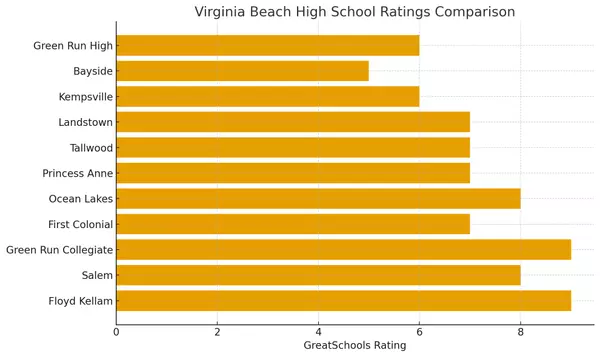8 Steps to Boost Your Credit Score

There are many reasons you might want to improve your credit score. If you’re preparing to buy a home, a higher score can help you qualify for better mortgage rates. If you’re working your way back from financial challenges, boosting your credit is even more critical before applying for a home loan.
Improving your credit score takes time. Since credit scores are based on your long-term credit history, it’s important to start building healthy credit habits as soon as possible. With consistent effort, you may start seeing improvements in just a few months.
Even if your credit score is low, buying a home is still possible. Pre-qualifying for a loan and being upfront with your lender about any credit challenges can help you work together to find the right financing solution.
The steps below can help you improve your credit profile over time. And if you’re just starting out, here are some useful tips for building credit.
What is a Credit Score?
A credit score estimates your likelihood to repay a debt based on your past financial behavior. The three main credit bureaus—Equifax, Experian, and TransUnion—gather data on your credit history to calculate your score.
Two main models are used to calculate credit scores: FICO and VantageScore.
FICO vs. VantageScore: What’s the Difference?
The VantageScore is commonly seen on credit monitoring apps, but FICO scores are typically used by mortgage lenders to assess your credit risk. FICO scores require at least six months of credit history, while VantageScore calculates after just one month. Both now use a range of 300 to 850, though they weigh various factors differently.
If you’re improving your credit score to buy a home, it’s important to keep an eye on both scores. The VantageScore is easier to track, while your lender will use your FICO score when evaluating your mortgage eligibility.
Factors That Affect Your Credit Score
Several factors contribute to your FICO score:
- Payment History (35%): Paying bills on time is the most significant factor. This includes credit card payments, car loans, and even cell phone bills.
- Credit Usage (30%): This is based on how much of your available credit you use. Keeping a low balance shows you’re a responsible borrower.
- Length of Credit History (15%): The longer your credit history, the better.
- Credit Mix (10%): Having a variety of credit accounts, such as installment loans and revolving credit, can positively impact your score.
- Recent Activity (10%): Opening new lines of credit too frequently can lower your score.
What Is Considered a Good Credit Score?
FICO scores range from 300 to 850. Generally, a score above 670 is considered “good,” while anything above 740 is “very good” or “exceptional.”
- 300-579: Poor
- 580-669: Fair
- 670-739: Good
- 740-799: Very Good
- 800-850: Exceptional
Why Does Your Credit Score Matter?
A good credit score not only helps you qualify for a mortgage, but it can also secure a lower interest rate, saving you thousands over the life of your loan.
How Long Does It Take to Improve Your Credit Score?
The time it takes to improve your score depends on your starting point and why it’s low. You may see improvement within a few months by making on-time payments, paying down balances, and disputing any errors on your credit report. Larger changes, such as moving from a "fair" to a "good" score, can take up to a year.
However, fixing more serious issues like late payments or accounts in collections can take longer. Negative marks like late payments stay on your credit report for seven years, and bankruptcies can stay on for up to 10 years. Still, taking consistent steps to improve your credit can have a meaningful impact.
Steps to Improve Your Credit Score
Here are a few steps you can take to start improving your credit score quickly and over time:
1. Monitor Your Credit Score
Regularly check your credit report to ensure everything is accurate. You’re entitled to a free report from each of the three bureaus once a year at AnnualCreditReport.com. Credit monitoring tools are also available to track your progress and alert you to any changes.
2. Dispute Errors
If you find errors on your credit report, dispute them with the credit bureaus directly. Correcting mistakes can give your score a boost.
3. Pay Off Delinquencies
Pay off overdue bills and settle accounts in collections as soon as possible. This won’t erase the late payment history, but it will stop ongoing negative marks.
4. Set Up Automatic Payments
Late payments are a major factor in low credit scores. Set up auto-pay for bills to ensure you never miss a due date.
5. Reduce Credit Card Balances
Try to keep your credit utilization below 30% of your available credit, and under 7% for the best impact on your score. If possible, pay off credit card balances in full each month.
6. Don’t Close Accounts
Even if you’ve paid off a credit card, keep the account open. Closing accounts can shorten your credit history and raise your credit utilization ratio.
7. Avoid Opening New Accounts
Refrain from opening new credit lines while working on improving your score. Each hard credit inquiry can negatively affect your score for up to two years.
8. Consider a New Account if Needed
In some cases, opening a new credit account might help, particularly if it lowers your overall credit utilization or offers a balance transfer deal. Just be mindful of the fees and how it affects your overall credit profile.
Can You Buy a House with Bad Credit?
Even if your credit isn’t perfect, buying a home is still possible. Be transparent with your lender about your situation, and get pre-qualified before shopping. Some loans, like FHA loans, allow for lower credit scores, so it’s important to explore your options early.
With the right steps and patience, you can improve your credit score and put yourself in a better position for homeownership.
Categories
- All Blogs (51)
- Buyer Stories (1)
- Buyer tips (7)
- Buyers (3)
- Buying (2)
- Buying Advice (3)
- Buying Assistance (3)
- Credit & Debt (2)
- Down Payment (1)
- Financing (8)
- Financing Options (1)
- First Time Home Buyer (20)
- Foreclosures (1)
- Interest Rates (2)
- Loans (4)
- Military (6)
- Mortgage Interest Rates (1)
- Mortgage Rates (1)
- New Construction (1)
- Personal Finance (2)
- Refinance (1)
- Schools (11)
- Tax tips (1)
- Title & Closing (1)
- VA Loans (1)
Recent Posts











